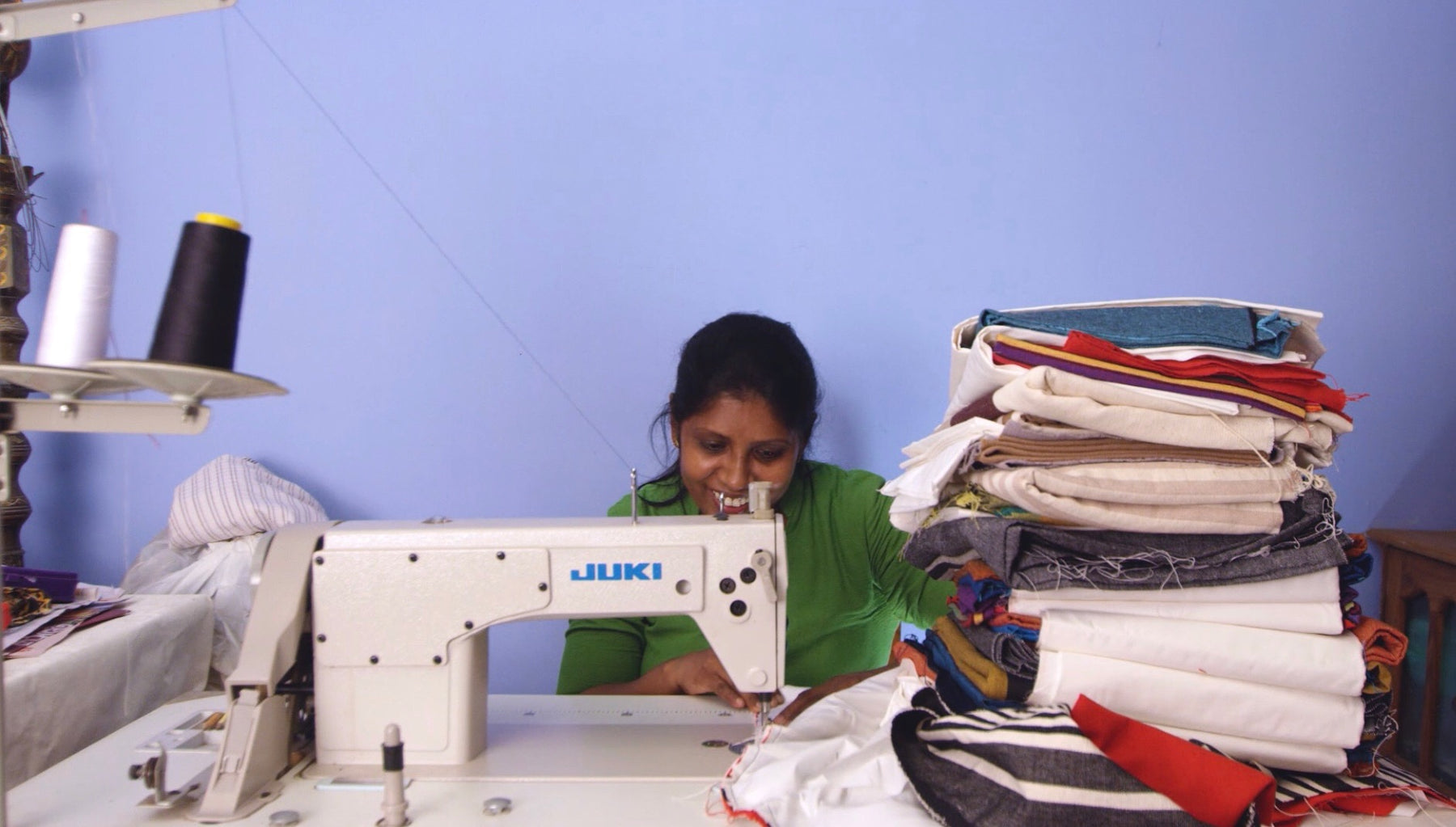Globally

Our Story of Factoryless Production
Community Sourced Production, a factory-less approach to manufacturing.
At ApiHappi we strive to create unique products out of traditional handloomed cotton, which include bags, bean bag chairs, etc.. Being in this industry we are often asked one big question….
WHERE IS YOUR FACTORY???
Actually...we don’t have a factory!
Why? Because we believe that there are more innovative systems that we can put in place that would be more ethical and efficient for our community and our company as a whole.
After observing and experimenting with our culture here in Sri Lanka we have come up with an interesting system that we like to call Community Sourced Production.
Community Sourced production is a system where we train artisans to produce our specific designs and then, we enable them to fulfill our orders while working at home.
Here are a few benefits of Community Sourced Production:
- Most of our artisans are women. One reason that stops them from going out to work at factories is that they have to stay home to take care of their families. With our system, they are enabled to work at home while fulfilling their household duties.
- Our system is Results based. We pay our artisans per bag, not per hour. This allows artisans to earn money based on their capabilities. From our experience with this system, our artisans are able to earn a much higher income than they would, working for a factory.
- We don’t need a factory space. We do have a workshop here where we cut the fabric and produce patterns and samples etc. and distribute the work to our network of artisans.
- When we train artisans, they have the opportunity to teach others in their surroundings. This increases their production capacity while creating a form of income for the members of the community. Outside of earning an income this also acts a catalyst to bring communities together.
- Scalability and Flexibility. The capacity of a factory is generally finite. If the demand is less than the capacity then you are most likely not running at full potential. If the demand is more than the capacity, then you will need to invest in expanding your factory. In our case, we are able to match up wholesale orders with the appropriate artisans allowing us to upscale and downscale at any time.
- Our artisans also have the freedom to work on other projects as long as they are able to consistently fulfill their orders. This enables them to earn more of an income.
- Reduced Carbon Footprint - We believe that in the long run, our lack of factory space would reduce our company’s carbon foot print by not having large scale machines and cooling/heating systems running. Also, since raw materials are transported to the artisans’ houses, and the finished product is transported back to the workshop, they do not have to “travel to work” every day. Thereby reducing the carbon dioxide contribution through modes of transportation.
Although there are many benefits of community sourced production, like any innovative idea, there are still many challenges to overcome. ApiHappi is still young so we are still learning and experimenting with new ideas every day. Of course traditional business people might look at our production model and think we are out of our minds. In their minds having a large factory performing at full capacity is what is best for efficiency and profits! We like profits too, but here at ApiHappi our main priorities are creating fun products while sustaining a happy community.
We welcome your questions and ideas!! Please comment below!

